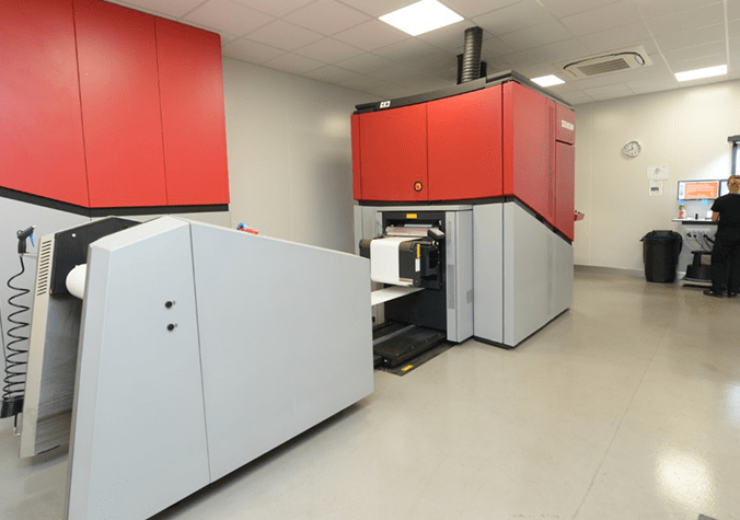The Cheetah technology of the Xeikon CX3 machine allows InterPrint to digitally print labels on any material without the need for priming beforehand

InterPrint starts to digitize its label production using Xeikon CX3 press. (Credit: Xeikon)
Spanish label converter InterPrint has invested in a Xeikon CX3 digital press with Cheetah technology to boosts its production capacity and productivity.
Installed at production plant in Navatejera, the Xeikon CX3 allows InterPrint to work with low levels of stock.
InterPrint is engaged in producing adhesive and non-adhesive labels on paper, cardboard, PVC, polyester, heat-transfer labels, hot foil stamped labels, multi-layer labels, and security labels.
The firm also produces folded boxes and promotional printed material for markets including pharmaceutical labs, large food and drink retailers, and logistics providers.
Xeikon said that InterPrint has already digitalised 10% of its production with the investment in Xeikon CX3 machine.
The Cheetah technology of the Xeikon CX3 machine allows InterPrint to digitally print labels on any material without the need for priming beforehand.
InterPrint CEO Tomás Iglesias said: “We chose this press for its dry toner technology which enables us to work with low levels of stock and boost our productivity as pre-treatment of substrates is not needed.
“This press enables us to use different substrates of varying thickness, including heat-sensitive substrates, to produce transparent and white labels with high levels of opacity.
“It must also be pointed out that the inks used for dry toner are safe for use with food, since some projects require this compliance, and offer high-quality printing, comparable to offset.”
Designed exclusively for self-adhesive and pressure-sensitive labels, the Xeikon CX3 label press has a resolution of 1200×3600 dpi.
The press features dry toners that comply with the regulations of the US FDA, Nestlé, Swiss regulations, and also the future European regulation on printing inks on food-contact materials.
Iglesias added: “The ability to offer variable data printing, shorter preparation and change times for short-run jobs since regular runs are under 500 meters, the use of safe dry-toner, and the availability of the press to work 24 hours a day are solid reasons why we chose to go with this technology.”
